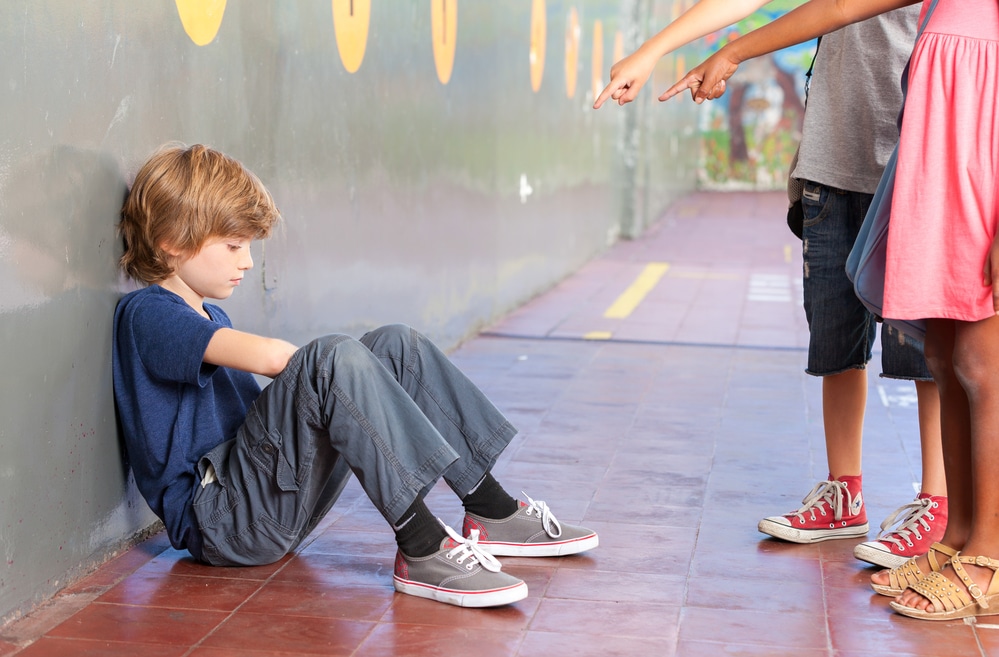Your precious child comes home severely upset and apathetic. He tells you that the popular kids are calling him stupid and gross and now the whole class doesn’t like him. He has no friends now and never wants to go back to school again.
Your heart sinks. How can kids be so cruel?
The first thing to know about teasing is that it is nearly always a single child who is leading the pack. If you really take a moment to look at this for yourself, you will see that this is as true in the workplace as it is in the school yard. 99% of the time there will be a single person who is poisoning the rest of the group with negative comments and backstabbing which then spreads until it seems like everyone is against you.
Just knowing this fact alone can help your child feel better so it is very important to ask him WHO is the leader of the pack and isolate the one person who is the real problem. Next, ask him to tell you what the pack leader said exactly.
Your child will respond with something like “He said I am stupid.” Or, “she said I am ugly.” A wise parent asks: “well, are you those things, or are those just words that somebody said about you that make you feel that way?” Help your child see the difference between what someone is saying about him and how he really is. You might even tell a little story about a person who was misunderstood by those around him but was actually really great. (Many folks that are highly respected were at one time imprisoned, excommunicated and even murdered).
And here is the final bit: ask your child how he thinks the situation should be handled. Should he run away and never go to school again? What would be the consequences of that? Let him do the talking and let HIM work it out and tell you. Please do not jump in and tell him, in so many words, that his solution is ridiculous and won’t work.
Your child is probably a lot smarter than you think and if you give him time to talk it through, he will see for himself which choice is the best. If he gets stuck, you can ask him about a fellow student or teacher that he admires and get him to tell you what that person would do in this situation.
The result you are going for is to get your child extroverting. Talking about the problem and possible solutions means he will be looking outward at the environment and thinking about actions he can be taking to be in control of the situation.
This, in and of itself has a very positive effect and even if you don’t come to a definitive resolution immediately, you have basically put your child back in the drivers seat – the first step in regaining confidence.
Lyn Demaree

